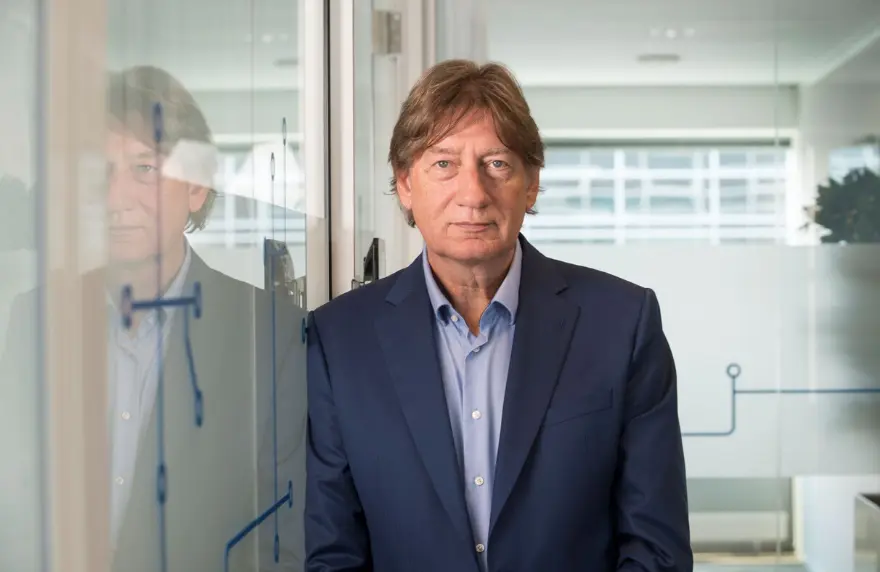Europa kan het dominante thema van 2014 worden. In de aanloop naar de Europese verkiezingen in mei presenteert Geert Wilders een door hem gefinancierde studie over de uittreding uit de Europese Unie. Het onderzoeksbureau Capital Economics zou al geconcludeerd hebben dat uittreden voordelig voor Nederland is.
Uit een onlangs verschenen studie van de Britse denktank Cebr bleek dat het lidmaatschap van de Eurozone de Nederlandse en Duitse economische groei zou remmen. Terug naar gulden en mark zou goed zijn. Alle reden dus om in 2014 het Nederlandse lidmaatschap van euro en mogelijk Unie te heroverwegen. Of niet? Ik denk dat laatste.
Een essentiële voorwaarde voor uittreden is dat dat schadevrij, dus geordend gebeurt. Maar deskundigen wijzen erop dat juist dit feitelijk onmogelijk is. Waarschijnlijk is het uittredingsproces chaotisch. Dat zal de economie pas ruïneren.
Aan politici kan dit niet worden toevertrouwd. Het probleem van de huidige Unie is het tekort aan politieke integratie. Ook werd de kardinale politieke inschattingsfout gemaakt dat de monetaire unie automatisch tot de noodzakelijke politieke unie zou leiden. Voor die politieke blunder heeft de Europese burger een hoge prijs betaald.
Het draagvlak-ondermijnende politieke gezwabber gaat door. Premier Rutte meldde een paar weken geleden, in tegenspraak tot wat hij de Kamer had gemeld, dat hij toch akkoord gaat met bindende afspraken met Brussel over economische hervormingen. Om in Europa nieuwe Griekse toestanden te voorkomen is dat een goede zaak, maar in Nederland wordt de discussie verengd tot overdracht van soevereiniteit.
Rutte’s ‘draai’ bevestigt bovendien bij de burger het beeld van onbetrouwbare politici bij wie de Europese Unie niet in goede handen is. Het Sociaal en Cultureel Planbureau peilde dat slechts 39 procent van de Nederlanders tevreden is met de Haagse politiek en 33 procent met de Europese. De nationale politiek krijgt als rapportcijfer een dikke onvoldoende: een 4,7. De Europese politiek krijgt een magere 4,4. Nog slechts 40 procent van de Nederlanders vindt het EU-lidmaatschap een goede zaak.
Ook ik geef de politiek een dikke onvoldoende als het om Europa gaat. Immers, de crisis waarin Europa na 2008 is terecht gekomen is vooral een politiek-institutionele crisis met verstrekkende economische consequenties. De euro ging door politiek geblunder bijna ten onder, maar werd uiteindelijk gered toen Mario Dragi, de niet-gekozen technocratische voorzitter van de Europese Centrale Bank, medio 2012 de financiële markten tot bedaren wist te krijgen.
Inmiddels beginnen politici in te zien dat stappen in de richting van meer Europese integratatie minder gevaar voor onze welvaart opleveren dan een discussie over minder integratie of zelfs uittreding. Vandaar Rutte’s draai en de bankenunie waarover de Europese leiders vorige maand besloten.
Laten politici het jaar beginnen met het voornemen het ‘eerlijke verhaal’ over Europa te vertellen. Erken openlijk dat geordende uittreding onmogelijk is en leg uit dat integratie in het landsbelang is.
En hou vooral op met dat schadelijke ‘dat moet van Brussel’. ‘Dat hebben we in Brussel met elkaar afgesproken’ doet meer recht aan de werkelijkheid.

